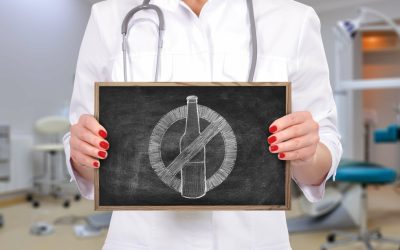It is important for a person to be aware of the signs and symptoms of alcohol-induced dehydration and the ways to avoid it. According to the CDC, drinking alcohol in moderation is safe for most people. A moderate amount equates to one glass of alcohol or less per day for females and two glasses of alcohol or less per day for males.
What Are the Ways to Rehydrate the Body After Drinking?
In addressing common inquiries about coffee and hydration, this section clarifies misconceptions and provides evidence-based explanations. Though all liquids can help you meet your fluid needs, some may be more hydrating than others. If you drink too much fluid to try to hydrate yourself, you could end up with swelling in the limbs (peripheral edema) and fluid buildup in the lungs (pulmonary edema). Red Bull, Monster, Rockstar, and many more brands that contain a higher concentration of caffeine and sugar. Follow the following steps to enjoy your beer and still remain hydrated.
Top 5 Most Popular Beers in Vietnam
Despite its diuretic effect, beer can be a valuable source of hydration. National Academies of Sciences, Engineering, and Medicine have found that beer increases the amount of water in your body by slightly more than plain water. This is likely due to the sugars, salts, and bubbles present in beer. In addition, beer helps you drink more water because the alcohol content can increase the absorption of water by your body. Regardless of its effect on water intake, it’s a good idea to drink beer in moderation. Some of the most obvious signs of dehydration caused by alcohol include thirst, headaches and dark yellow urine.
Caffeine’s Role in the Body

In people with a genetic predisposition, typically East Asians with the “Asian flush” gene, the body may struggle to break down acetaldehyde, a toxic byproduct of alcohol. As acetaldehyde accumulates, it triggers skin redness and other symptoms. Thirst, lightheadedness, and dark urine are three signs of dehydration, but there are many others to watch out for. We’ve had a night out, and the next morning we wake up and aren’t feeling well. These foods also benefit from being easy on the digestive system if a person is upset from drinking too much alcohol. Because beer contains less alcohol, it is less dehydrating than wine or other liquor, and wine is less dehydrating than spirits, with one important caveat.
What are the symptoms of dehydration?

Lemons are a natural source of electrolytes, which are essential for regulating blood pH and muscle function. In conclusion, while non-alcoholic beer contains the necessary water and electrolytes for rehydration, it may not be the optimal choice for post-workout recovery. Nonetheless, it can be a refreshing and healthy alternative to regular beer, especially if consumed with a salty meal to enhance sodium intake and improve rehydration. However, it’s important to note that the effectiveness of non-alcoholic beer as a recovery drink compared to traditional sports drinks is still up for debate. The risk of dehydration from drinking on an empty stomach is further increased if vomiting occurs, as vomiting can also lead to dehydration.
What methods can mitigate the diuretic effect of caffeine in beverages?
- Though there’s no instant hangover remedy, there are ways to hydrate your body after drinking and ways to prevent that hangover feeling in the first place.
- If you become dehydrated while pregnant, you can face serious health problems such as too little amniotic fluid, premature labor, and a lack of breast milk.
- Prolonged dehydration can also lead to more serious health issues such as kidney stones and urinary tract infections.
- Dehydration may also impair blood sugar response in some, such as those with type 2 diabetes.
- No matter, when water is pulled from our cells to dilute the sugar concentration in our blood, that will result in dehydrating effects throughout the body.
Additionally, dehydration can lead to dark urine and decreased urine output. Alcohol is a diuretic, meaning it increases urine production and can lead to fluid loss. If you notice that your urine is dark in color or that you’re urinating less frequently than usual, it’s a sign that you need to drink more fluids. Alcohol’s impact on kidneys is a significant concern when considering the effects of dehydration. When we consume alcohol, our bodies experience a diuretic effect, causing us to urinate more frequently.
Electrolyte Imbalance
Since alcohol travels through the bloodstream, it can travel to other areas of our body including the pituitary gland in our brain. The pituitary gland is responsible for regulating our growth, metabolism, and reproduction by creating and regulating hormones. When alcohol reaches the pituitary gland, it blocks the creation of vasopressin, which is drug addiction known as the antidiuretic hormone or the hormone that helps us retain fluid in our body. Blocking this antidiuretic hormone causes fluids to pass directly through the kidneys to our bladder, which is why we have to pee way more while drinking alcohol. Drinking water alongside your alcoholic beverages can help to mitigate the dehydrating effects of alcohol.
People Are Reading
When your body is low on water, introducing alcohol is like adding fuel to a fire. Your kidneys are already trying to hold onto every last drop of water, but the hormonal interference from alcohol forces them to do the exact opposite. As discussed earlier, alcohol has diuretic properties, leading to an increase in urination and potentially resulting in dehydration. For athletes, maintaining optimal hydration is crucial for performance. Dehydration can lead to muscle cramps, impaired thermoregulation, decreased strength and endurance, and overall diminished performance.
This is why how can alcohol, a liquid, dehydrate the body? individuals who engage in binge drinking often experience intense and frequent urges to urinate. Now, when alcohol enters the picture, it’s like a mischievous student who distracts the janitors from their duties. The janitors become less efficient at reabsorbing water, causing it to be wasted and flushed away. The mischievous student also encourages the janitors to produce more urine, leading to frequent trips to the bathroom.